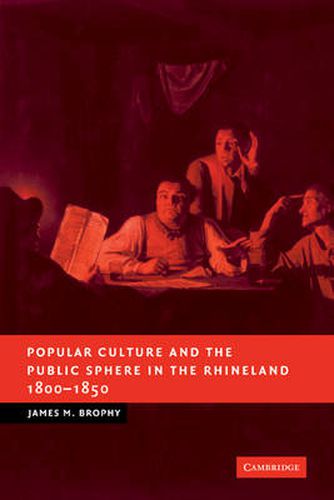Readings Newsletter
Become a Readings Member to make your shopping experience even easier.
Sign in or sign up for free!
You’re not far away from qualifying for FREE standard shipping within Australia
You’ve qualified for FREE standard shipping within Australia
The cart is loading…






The age of revolution challenged the ancien regime’s political world, introducing Europeans to fresh ideals of citizenship. German society was no less affected. Following the Napoleonic era, a political culture of partisan choice undermined the official restoration of absolutism. Bourgeois and popular classes took part in the political landscape of civil society, producing an impressive social base for participatory politics by the 1830s. Because of severe restrictions on speech and assembly, ordinary Germans formed political opinions in irregular ways. This book looks at the sites and forms of culture that facilitated political communication. With chapters devoted to reading, singing, public space, carnival, violence and religion, James Brophy argues that popular culture played a critical role in linking ordinary Rhinelanders to the public sphere. Moving beyond conventional explanations of opinion formation, he exposes the broad cultural infrastructure that enabled popular classes to join the political nation.
$9.00 standard shipping within Australia
FREE standard shipping within Australia for orders over $100.00
Express & International shipping calculated at checkout
The age of revolution challenged the ancien regime’s political world, introducing Europeans to fresh ideals of citizenship. German society was no less affected. Following the Napoleonic era, a political culture of partisan choice undermined the official restoration of absolutism. Bourgeois and popular classes took part in the political landscape of civil society, producing an impressive social base for participatory politics by the 1830s. Because of severe restrictions on speech and assembly, ordinary Germans formed political opinions in irregular ways. This book looks at the sites and forms of culture that facilitated political communication. With chapters devoted to reading, singing, public space, carnival, violence and religion, James Brophy argues that popular culture played a critical role in linking ordinary Rhinelanders to the public sphere. Moving beyond conventional explanations of opinion formation, he exposes the broad cultural infrastructure that enabled popular classes to join the political nation.